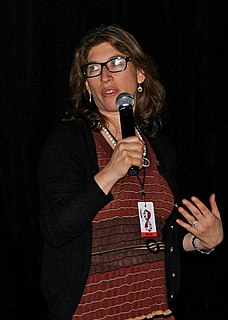A Quote by Melissa Bean
And I also serve on a caucus that addresses financial literacy for young people in this country. And it is so hypocritical that we want to talk to these kids about how to better manage their money when we are not doing a good job with our Nation's resources.
Related Quotes
In terms of my profession, I'm passionate about financial literacy. I want to live in a financially literate society. I want kids to understand the importance of savings and investing. I want to try to replicate the great savers who came out of the Depression, the best savers the country has ever seen. It's crucial that people understand the importance of financial literacy, because it's actually life saving.
Financial literacy is not an end in itself, but a step-by-step process. It begins in childhood and continues throughout a person's life all the way to retirement. Instilling the financial-literacy message in children is especially important, because they will carry it for the rest of their lives. The results of the survey are very encouraging, and we want to do our part to make sure all children develop and strengthen their financial-literacy skills.
It's great to talk about how good things are now. But we can't sit on our laurels and expect that our time will sustain itself if we don't do a better job on issues like education... It's absolutely the case that the low cost of college tuition that I was able to enjoy and the financial aid I was able to receive made my education possible.
People, materials, facilities, money, and time are the resources available to us for conducting our business. By applying our skills, we turn these resources into useful products and services. If we do a good job, customers pay us more for our products than the sum of our costs in producing and distributing them. This difference, our profit, represents the value we add to the resources we utilize.
Some [people] think that there is a central organization responsible for all the institutions they wrongly think affiliated with me. They ignore the zeal of many to serve humanity and to gain God's good pleasure in doing so. They ignore people's generosity. Such misunderstandings may lead others to have suspicions about the financial resources of the schools.
When we talk about something like student loans, what we should be talking about is the fact that every American wants their kids to do better than we have done. If we can get that, the other thing we'd really like is for our kids to be able to come home and raise their kids in the community where we raised them. What unites all of us, no matter where you live in the country, is we want our family to be safe, we want the next generation in our family to be more successful than us, and we would like our family to be close together.
But when you talk about the education and you talk about the lack of recreation for kids to do, I mean, it's second to none in New Orleans when you talk about the lack of opportunities for young people. And it's not just black kids, it's white kids. It's Asian kids. I had Vietnamese kids in my class that had lack of opportunities.
During the Reagan eighties, the idea that money was a good thing - it was good to be rich; that wealth was a reflection of your character. We see this today in perceptions of Donald Trump: the idea that money is an expression of success and even goodness. I compare that with my dad's generation, where the American Dream was about giving your kids a better life, but not just in material terms. The American Dream was also about doing something good in the world. The home was at the center of the dream, but home also represented community, shelter, and stability for your family.
If the president of the country is not actually saying something, allowing equality to happen, how could you expect to counsel kids not to bully other kids? If they're not seeing that their society sees gay people as equals, how could you tell them what they're doing is wrong? With all this stuff going on, with the "Don't ask, don't tell" and things like that, we are second-class citizens, definitely. It just seems to me that it's hypocritical for us as a culture to say, "Bullying is a terrible thing," when really, they are just reflecting what the society is doing.
As individuals, people are inherently good. I have a somewhat more pessimistic view of people in groups. And I remain extremely concerned when I see what's happening in our country, which is in many ways the luckiest place in the world. We don't seem to be excited about making our country a better place for our kids.


































